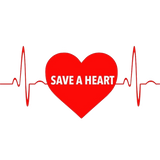The Role of Emergency Medical Services in Treating Heart Attacks

Emergency medical services (EMS) play a critical role in the treatment of heart attacks. When someone experiences a heart attack, time is of the essence. Every minute that passes without treatment can result in further damage to the heart muscle. EMS providers are trained to quickly assess and stabilize patients who are experiencing a heart attack, and to transport them to a hospital where they can receive further treatment.
EMS providers are typically the first medical professionals to arrive on the scene when someone is having a heart attack. They are trained to recognize the symptoms of a heart attack and to quickly assess the patient's condition. This includes taking their vital signs, such as their heart rate and blood pressure, and listening to their heart and lungs with a stethoscope.
Once the EMS provider has assessed the patient's condition, they will begin treatment. This may include administering oxygen, pain medication, and medications to break up blood clots. In some cases, they may also perform procedures such as chest compressions or defibrillation to try to restart the heart.
After the EMS provider has stabilized the patient, they will transport them to a hospital where they can receive further treatment. This may include procedures such as angioplasty or coronary artery bypass surgery to restore blood flow to the heart.
In summary, EMS providers play a vital role in the treatment of heart attacks. They are trained to quickly assess and stabilize patients, and to transport them to a hospital where they can receive further treatment. Their quick actions can be the difference between life and death for someone experiencing a heart attack.


